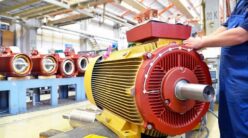 An electric water heater is an essential appliance that quietly goes about its business. After a hard day at work, there’s nothing better than a long, hot shower to wash away the fatigue. A broken water heater is the last thing any of us needs. Just picture yourself waiting to get in the shower as the water temperature unexpectedly drops to freezing. There are a few things you can do that won’t break the bank or take as long as getting a plumber for theelectric water heater repair. You would rather not have to repeatedly contact a plumber to have them come out and fix the water heater. The need for geyser repair may be avoided by adhering to a few simple, fast, and foolproof procedures.
An electric water heater is an essential appliance that quietly goes about its business. After a hard day at work, there’s nothing better than a long, hot shower to wash away the fatigue. A broken water heater is the last thing any of us needs. Just picture yourself waiting to get in the shower as the water temperature unexpectedly drops to freezing. There are a few things you can do that won’t break the bank or take as long as getting a plumber for theelectric water heater repair. You would rather not have to repeatedly contact a plumber to have them come out and fix the water heater. The need for geyser repair may be avoided by adhering to a few simple, fast, and foolproof procedures.
Electric water heater repair: Typical Issues
- If your water heater isn’t producing hot water, there are likely major problems that need to be fixed.
- If there is not enough hot water, you Shouldn’t Ignore It! Get the heater fixed if you suspect it is not warming the water enough; otherwise, you may end up with no hot water at all.
- If water is dripping or spraying out of the water heater, or if there is rust or other white-colored deposits, this might be a significant problem that has to be rectified as soon as possible.
- Bad odors in water are caused by bacteria colonizing the tank’s sediment, therefore this is problem number four. The moment a foul odor is detected, the tank must be drained and cleaned.
- Abnormal noises, like as loud pops, might cause silt to be eroded and deposited elsewhere. It’s best to have a plumber take a look at anything that makes a strange noise, just in case.
What should I do if the water smells bad?
Most of the unpleasant odor comes from the bacterial breakdown of the anode rod. This odor may be easily eliminated. If the water heater still smells bad after being cleaned with a weak concentrated H2O2, the anode rod should be replaced.
Helpful Hints for Fixing Your Water Heater:
- Experts recommend placing a water heater at about six ft from the floor when installing it. This is because it increases water pressure, allowing for the production of hot water.
- Please turn off the water supply to the water heater. Collect the water as it drains from the water heater; you’ll see that it’s full of sediments. Sediment may build up in the water heater if it isn’t emptied regularly. This can lead to major problems.
- You can tell whether there’s a problem with the water heater by inspecting the pressure-relief valve and the thermostatic mixer for obstructions. Once a year is enough time to check the pressure and prevent serious problems.
- Take regular readings of the water temperature. The ideal hot water temperature is 120 degrees and should never be raised over that.
- Pay particular attention to the exhaust stack to make sure that all connections are secure and that there is no water leaking from the water heater. In addition, take care of any deterioration or rust that you find, since these might become an issue down the line if left unchecked.
- When your electric heater is older than 10 years, you should consider replacing it with a newer one. A water heater from even a decade ago will be inefficient compared to the cutting-edge models available today. The replacement of a water heater that is more than a decade old will have a significant impact on monthly power costs.
- The insulation surrounding the unit should be checked once every few months. Sealing is necessary for the water heater, especially if it is an older model. Since the heater won’t have to run as often, the cost of running it will go down, and you won’t have to worry about running out of hot water.
- Wiring and electrical connections: The water heater should be connected to a Compact Circuit Fuse that will trip if the electricity goes off.
- Preventative measures per year: Get your heater checked up once a year to prevent a major breakdown. Early detection is key since it allows for simple fixes.
- If you turn down the heat, the water will reach the correct temperature more quickly and use less energy, and it will be less likely to cause burns if an accident does occur because of the water’s temperature.
- Electric heating systems are your best choice if you’re looking for energy-efficient and environmentally friendly alternatives to gas or propane. In contrast to conventional water heaters, tankless models only heat water as it is needed, resulting in significant energy savings. The Jaquar website is another great resource for bathroom-related advice. Other helpful repairs, such as a leaking toilet repair, can be researched for additional cost savings.





